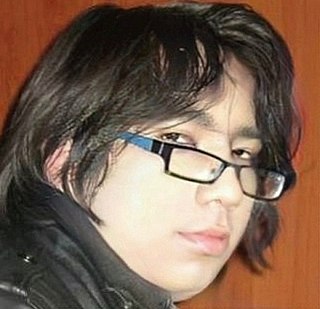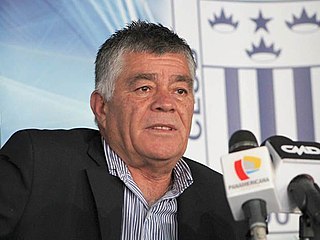Newspapers in Peru include:
Newspapers in Peru include:
Peruvian culture is the gradual blending of Amerindian cultures with European and African ethnic groups. The ethnic diversity and rugged geography of Peru allowed diverse traditions and customs to co-exist. Peruvian culture has been deeply influenced by Native culture, Spanish culture, and African culture. Other minor influences on their culture are Chinese, Japanese, and other European peoples.

La República is a Peruvian newspaper based in Lima, Peru. It is one of the two main national daily newspapers sold all over the country since it was founded on November 16, 1981.
Chicha Press is a Peruvian nickname for sensationalist tabloid newspapers that first emerged in the 1980s. The etymology of Chicha Press is derived from the name for certain drinks made from corn, which later came to be used by some in Peru describe the culture of Andean migrants to the capital region of Lima during the 1960s. The concept of the Chicha press became a central part of the national culture in 2000 when it was popularized by Alberto Fujimori to discredit opponents of his government in the general elections of 2000.

Bembos is a Peruvian fast food chain offering hamburgers, often with Peruvian-influenced variations.
The mass media in Peru includes a variety of different types of media, including television, radio, cinema, newspapers, magazines, and Internet-based web sites. Much of the print-based media in Peru is over a century old, with some newspapers even dating back to the time of independence.

The 1928 Primera División was the 13th season of top-flight Peruvian football. A total of 19 teams competed in this league, with Alianza Lima successfully defending their title. The first Superclásico was contested in this season.

The 1930 Primera División was the 15th season of top-flight Peruvian football. A total of 12 teams competed in this league, with Atlético Chalaco winning its first league title.
Ricardo Uceda Pérez is a Peruvian journalist notable for his award-winning coverage of military and government corruption.

Mávila Milagros Huertas Centurión is a Peruvian journalist, writer, actress, and radio and television presenter.

Together for Peru is a Peruvian centre-left to left-wing political coalition founded with the incumbent registration of the Peruvian Humanist Party.

Rafael Bernardo López Aliaga Cazorla is a Peruvian businessman and politician, who is serving as mayor of Lima since 2023. He is currently the leader of Popular Renewal, the successor to National Solidarity reformed in 2020.
The 2021 Liga 1 de Fútbol Profesional was the 105th season of the Peruvian Primera División, the highest division of Peruvian football. A total of 18 teams competed in the season, with Sporting Cristal coming in as defending champions.

Raúl Alfonso Allain Vega is a Peruvian writer, poet, editor and sociologist.
El Comercio Group (GEC) is a Peruvian media conglomerate that owns multiple newspapers, television stations and other entities. The largest media conglomerate in Peru and one of the largest in South America, El Comercio Group is owned by the owned by the Miró Quesada family.

Miguel Ángel Arrué Padilla is a Chilean football manager and former footballer.

The Revolution and the Land is a 2019 Peruvian documentary film directed by Gonzalo Benavente Secco and written by Gonzalo Benavente Secco & Grecia Barbieri. The film is about the 1969 agrarian reform carried out by the left-reformist military dictatorship, calling itself the "Revolutionary Government of the Armed Forces".

Nivardo Vasni Córdova Salinas is a Peruvian writer, editor and journalist.

The Punishment is a 2023 Peruvian-Colombian drama film directed, written and produced by Joel Calero. It stars Juana Burga accompanied by Amiel Cayo, Lucho Cáceres, María Luque and Katerina D'Onofrio. It is the second film in the director's Calero tetralogy of memory, following One Last Afternoon (2016).
Diario Expreso is a daily newspaper with national circulation in Peru. Founded in 1961, it is among the newspapers with the highest circulation in Peru.